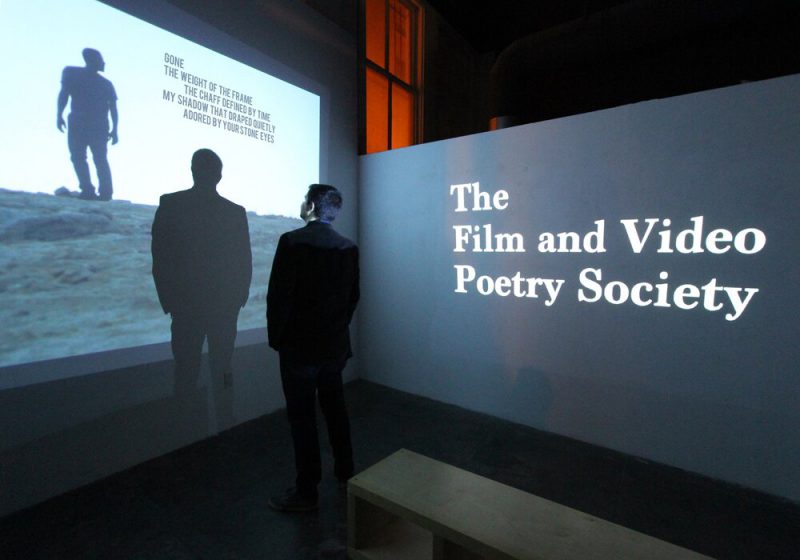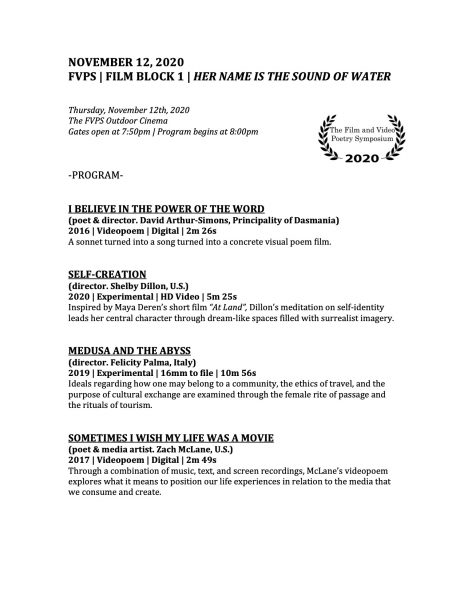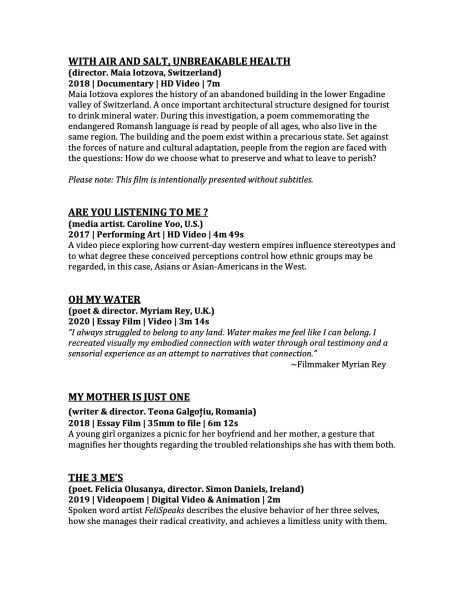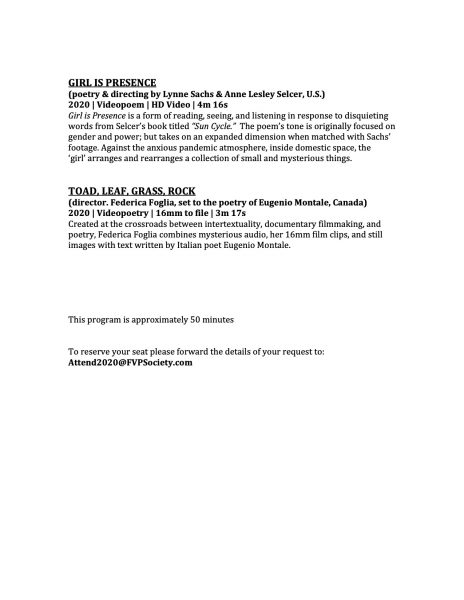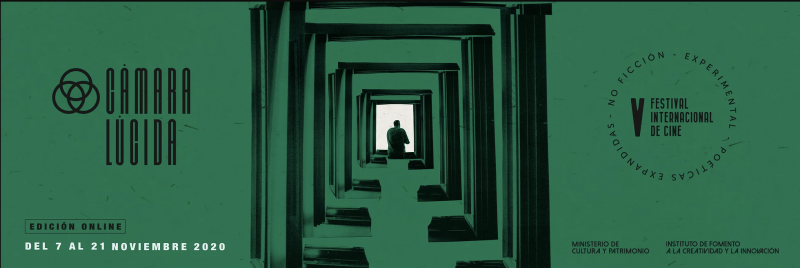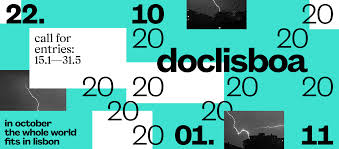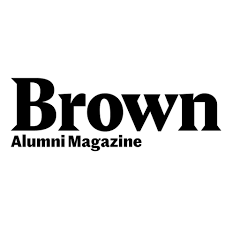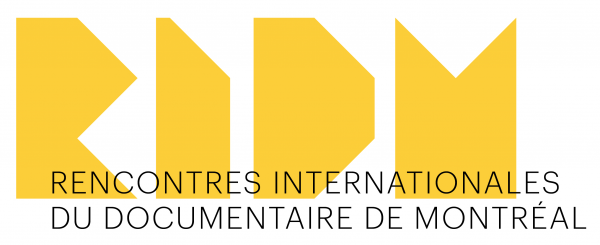
RIDM
November 2020
https://ridm.ca/en/events/entretien-lynne-sachs/?fbclid=IwAR2yXnSV68dMM3uhYA_WZ86Kngx-ti0cSDqTLSZi1slyyfOAoBQEwNTggMM
Interview with Lynne Sachs, filmmaker of Film About a Father Who, presented in the section Seeking Communities (November 12-18)
You started shooting some of the material in the film some thirty years ago. Did you know at the time you wanted to make a film about your father? Why did you need three decades to achieve what you were looking for?
By the early 1990s, I decided that I would keep one foot in documentary and the other in experimental film. Deeply moved by critical and theoretical writings on reality-based filmmaking, I realized that I needed to invert the field’s tendency to look at others’ lives by turning the camera on myself. With this personal challenge in mind, I decided to shoot a film with and about my father. At the time, I was equal parts fascinated and confused by the free-spirited, iconoclastic, often secretive life that he led. When I told him that I was making a film about him, he seemed intrigued, and off we went. But the “production” was not an easy one. I stopped and started every year. When you are holding a camera, you sometimes see more than you bargain for.
How did your father, and the rest of the family, feel about the project?
It’s funny. I think that being the “star” of a movie these days comes with a kind of allure. My dad always seemed to enjoy his place in front of my camera. He got so into the idea of making a movie with me that he would say Hollywood things like “Lynne, hurry up, we’re losing light!” Clearly, we live in such an image-dominated society that people are more and aware of how they present themselves. It’s in the realm of sound, specifically voice, then, where I think you can find the most intimacy, candor and insight. As you can see in my film, my father was very controlled in terms of what he would say or, probably more accurately, what he could say about his feelings. Maybe that’s generational, common for men of his age. I hate to make these kinds of gendered observations. In terms of working with my eight siblings on this film, I discovered that keeping my camera off, and sitting with each one alone, in total darkness with my microphone and audio recorder was extraordinarily generative. A film director’s eyes function like a mirror for the people in front of the camera – whether they are subjects in a documentary or actors in a narrative. Having the lights out was key to taking my film to a deeper place.
Your footage comes from a variety of media (film, video, digital), but you manage to bring them all together in an aesthetically successful way. Was it a challenge?
Unlike painters, filmmakers need to adapt to constantly changing technologies. For me, there are some constants. I’ve been using the same wind-up Bolex 16mm silent film camera since 1987 but the video cameras I use change pretty much every two years, from VHS to Hi8 to MinDV to high-definition digital to cell phone. Thus, my film is a kind of archeological document of the changing field. The screen image reflects the times, both in terms of context and texture. But unlike the technology, we as subjects remain the same, only we get older, all of us at the same rate, day by day. I decided to edit the film with Rebecca Shapass, a wonderful artist and filmmaker who was a student of mine just a few years ago. Together in my studio, we watched the skin of the film and the skin of our bodies change over three decades. This process was extremely difficult for me, both personally and aesthetically. But, it was so important to share the stories in the film with someone who could have a distance from our story, and who clearly was not going to be judgemental. In addition, Rebecca, who is in her mid-twenties, was able to see the beauty in the older footage and to appreciate the refreshing non-digital wrinkles. We spent the first year editing 12 discrete experimental films that had their own interior shape and structure. We spent the second year pulling these apart and reconstructing them into a single feature-length film.
Your look on your father is very lucid but never judgmental, which I think is a great strength of the film. Was that a difficult balance to strike?
You’ve asked a key question by pointing to the daunting, interior challenge that both nourished my process and stopped me in my tracks. I needed to find a place in my narration for the film that could candidly articulate my rage and my forgiveness. Some cuts went too much in one direction, some in the other. I finished my film during a time in our culture when so many women are reckoning with who they are in relationship to the men in their lives. Our personal investigations necessitate finding a strategy where we can do so many things at once – resist a self-imposed artificial amnesia, be true to our own stories, and go forward.
You may still ignore who your father really is, but what did you learn about family through making this film?
Frankly, I have learned so much about the imprint of family on all of us from audiences who
have watched Film About a Father Who. Despite the fact that I have only interacted with people in real theaters three times since its premiere, more people have written to me (through my website lynnesachs.com) after watching this film than ever before. Virtual screenings, Q and A’s and these email responses are simply part of our lives these days, and the result is that viewers are watching films and seeking out ways to engage one-on-one with their makers. It’s really been extraordinary. To my surprise, I have heard from almost as many men as women, and in each case people are writing to me about the way that my film somehow offers them a way to think about the imprint that their parents have had on them as children and later as adults. This, in and of itself, is more important to me than the fact that they have “learned” something about me or my family. My intention was not to make an exposé but rather a visual essay, a 74-minute cinema experience that ultimately made people think about their own lives and relationships.
What was it like premiering the film at Slamdance, in Park City, where your father lives? It was also one of the last “live festivals” before the pandemic!
Ok, so I am going to tell you a behind-the-scenes story. In December of 2019, Paul Rachman, one of the founders and directors of Slamdance, called me from his car in Los Angeles. He told me that my film had not only been accepted to the festival but that they wanted it to be their Opening Night feature. At first, I was thrilled, but quickly my emotions shifted to fear and worry, for exactly the reasons you mentioned. Paul spent the next few days convincing me that Slamdance would be an exciting and supportive place for my World Premiere. He could not have been more correct. Hundreds of people came to the two scheduled screenings. There was so much interest in the film, they added a third show. More important than the number of people, however, was the special mix in the audience: local family friends, Sundance folks, cinephiles who come to Park City every year, film critics, and festival directors. Of course, I had deep face-to-face conversations with people who had known my father for decades but still discovered new, probably shocking, aspects to his complicated personal life. I also got the chance to talk to film writers, podcasters, and feminist bloggers. My father, who is now 84 and spends the winter in a warmer place, flew to NYC for the second screening of the film in the Museum of Modern Art’s Documentary Fortnight. He has expressed subtle regret at the pain some of his life choices have caused, but this was the life he chose, and he owns it.
Anything else?
I wish I were planning to come to Montreal by car or plane in a few weeks. The only time I have ever been to the city was for Expo ’67, when I was six years old. I was so enthralled by the exhibits, particularly the Telephone Pavilion which featured a 360-degree film screen that surrounded viewers. I just looked up this building and discovered that it was designed by Saskatchewan-born woman architect Dorice Brown. Very cool, especially for that time. I should also add that I got lost at the Expo for an entire day. My parents eventually found me at the police station. Somehow, I did not know I was lost, until they showed up with very relieved faces.

